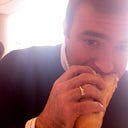Shhhhhhhhh …

(“Are they talking about the bordello?” “No, the burlesque house. So just keep your mouth shut!”)
While I’ve been looking into the suburban Texas districts where activist groups are trying to get books removed from libraries and classrooms, I’ve also noticed the books the banners are not going after.
Now, I assume anyone seeing this post is a reader, so I know that you know that lots of literature has sex in it. How could it be otherwise? Sex is part of life.
But the people banning books didn’t do their homework in high school English, so they missed all the sex jokes in Shakespeare and Chaucer, and they didn’t get that the central drama of The Sun Also Rises is that Jake Barnes can’t get his thing to work. Let’s just say they weren’t dedicated readers of John Donne.
The people banning books get their lists from the internet, from lists shared by other non-readers. So they go after books that have been challenged elsewhere in big, high-profile cases. They have no idea that the school libraries they’re ransacking for “PORN” and “EXPLICIT SEX” have books by Junot Díaz and Philip Roth (and of course Nabokov!) that make the sweet coming-of-age stories they’re attacking look like Disney movies.
I mean, most of the districts I’ve queried have Sally Rooney’s Normal People in their libraries, but I haven’t seen that book challenged once.
I don’t know what to do with this knowledge. On the one hand, I don’t want to risk alerting these folks to more books they could try to ban. It’s doubly dangerous since these groups are all in conversation with each other, and a viral video of a parent reading an out-of-context paragraph at a school board meeting can lead to bans across the country. Newer novels, like those by Díaz or Jesmyn Ward, are especially at risk. My high school recently introduced Ward’s Salvage the Bones to our 11th-grade AP curriculum. It’s a great addition, my favorite novel written in the US in the past 20 years. Which is saying A LOT! But it also has frank sex scenes (again, like lots of great literature) and I don’t want it to face the same fate as The Bluest Eye or Ashley Hope Pérez’s Out of Darkness.
On the other hand, the loopiness of these book challenges shows that the activists behind them are fundamentally unserious. While they try to portray themselves as crack investigators, uncovering secrets that schools don’t want parents to know, they actually don’t grasp the basic realities of education — realities they could glean if they would spend a few minutes talking to their kids about what they’re learning in class.
I guess the solution is this: I’ll post this here on my Medium page, and anyone who encounters it can chuckle at the book banners.
